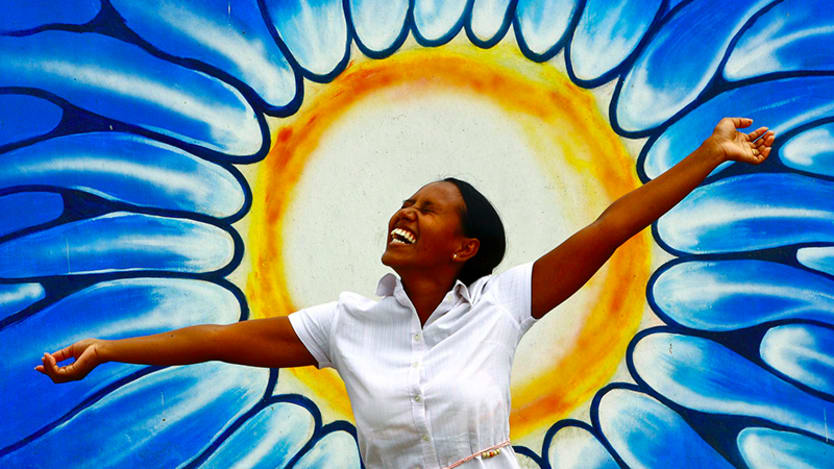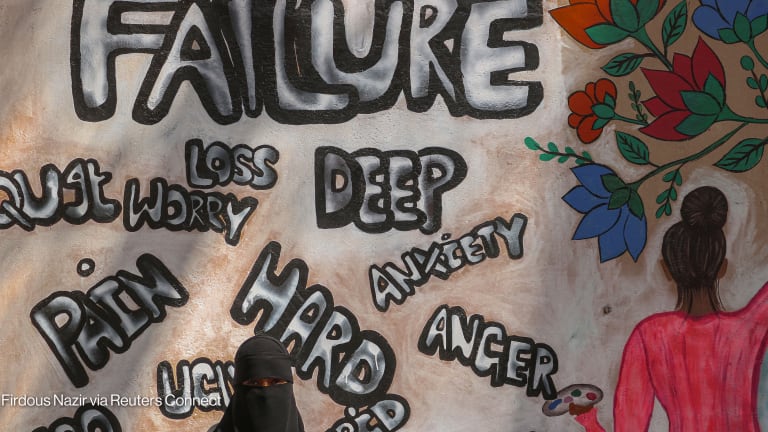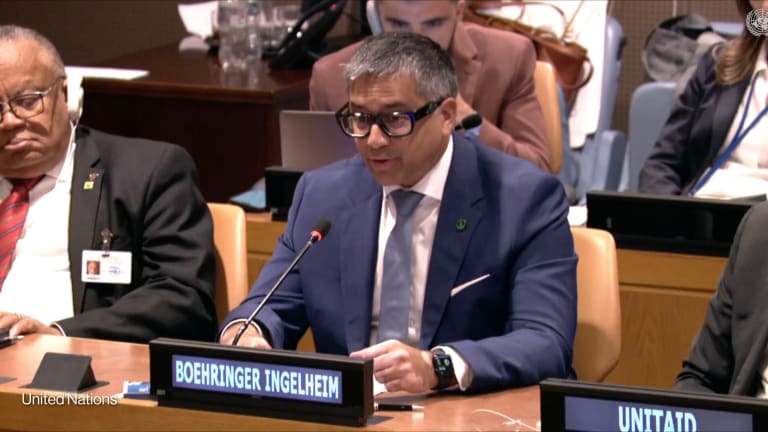Opinion: Finding the place for mental health and well-being in global development

When you ask people the question: “What is it that you want in life for you and your family?” most responses will revolve around the themes of happiness, contentment, and fulfillment. Similarly, it could be argued that the ultimate aim of many development interventions is well-being, even if this is often not clearly stated and is almost always unmeasured as an outcome.
Poverty alleviation, peace and security, safe housing, violence reduction, health, education, gender equity, disability inclusion, and good governance all have a positive impact on well-being if successful, reflecting an unconscious consensus around the purpose of many activities in our sector.
In recent years, this has started to be more explicitly acknowledged. While the Millennium Development Goals do not mention mental health, the third Sustainable Development Goal is to “ensure healthy lives and promote well-being,” mirroring the well-established adage “there is no health without mental health.”
Having been acknowledged in theory for many years, evidence-based practice aimed explicitly at improving mental health is now being more concretely integrated into programming, and the major bilateral and multilateral agencies, as well as funders and governments, are moving from an acceptance of the importance of this area to starting to plan and budget mental health into their work.
Equity and justice are at the heart of what drives global mental health as a field.
— Julian Eaton, co-director of the London School of Hygiene & Tropical Medicine’s Centre for Global Mental HealthGrowing interest in and attention to mental health
Mental health has been prominent at this year’s U.N. General Assembly and World Health Assembly, and it has been explicitly highlighted in the international organization’s declaration on universal health coverage. Increased investment in staff well-being is also being advocated for in the private sector, with mental health featuring strongly in the agendas of OECD, the World Economic Forum, and many businesses.
The past 15 years have seen a tenfold increase in development assistance for mental health, albeit from a low starting point. And at a landmark World Bank meeting in 2016, the investment case for mental health was made: “Depression and anxiety disorders ... result not only in an enormous amount of human misery and lost health, but also lost economic output.”
A return on investment of up to 5.7:1 was found for mental health and economic outcomes, with plans being developed for dramatically increasing global funding for mental health. And now an Alliance of Champions for Mental Health and Wellbeing — comprising governments committed to increasing investment — has brought together ministers at two annual summits, the first in London in 2018 and the second in Amsterdam in 2019. The third will be in Paris in 2020.
The U.K. Department for International Development, in a reflection of developments in many bilateral funding agencies, will publish a topic guide in early 2020 — the result of a long period of consultation and learning. For the first time, a broad-based advocacy voice aiming to drive forward these agendas has been established: the Blue Print Group, facilitated by United for Global Mental Health, which has also coordinated a strong campaign, #SpeakYourMind, at a global level and in over 15 countries.
Service-user voices are growing, and the disability community has engaged strongly with the field, sometimes providing a critical voice and highlighting the importance of rights-based and social approaches, drawing for example on the U.N.’s Convention on the Rights of Persons with Disabilities.
In this young field, there remain many points of debate and contention. Should we continue to focus on closing the huge gap in access to health care, or focus more on other priorities such as ending coercion and inhumane abuses, or on reducing risk factors for mental ill-health? To what extent can good practices from one location be transposed to others with different cultural understandings around mental health — especially given a dominance of research and expert leadership coming from the global north? How can we more effectively drive recognized priorities such as strengthening the participation of people affected or fostering innovative homegrown solutions to improve mental well-being?
As the interest and investment in mental health grows, it is essential that we work toward reaching pragmatic but principled solutions to these questions so that we make the most of these opportunities, avoid the mistakes of other global movements, and do no harm. The Lancet Commission on Global Mental Health and Sustainable Development explores many of these questions and proposes a reframing of the field for the next decades, focusing not only on closing the care gap, but also on addressing the social determinants that drive poor mental health. As with all global health and development agendas, equity and justice are at the heart of what drives global mental health as a field.
Bridging the gap
Sub-Saharan Africa is substantially lagging behind in meeting the major targets of the World Health Organization’s Comprehensive Mental Health Action Plan, adopted by governments around the world in 2013. Particular challenges are in human resourcing, policy frameworks and governance, low investment, and chronic drivers of mental ill-health such as protracted conflict, poverty, and youth unemployment.
But a number of activities focused on addressing this are taking place.
In early November of this year, governments and intergovernmental regional groups and members of civil society, including service users, from across West and Central Africa met in Bobo-Dioulasso. Hosted by the West African Health Organization, or WAHO, and CBM, they considered how best to address huge gaps in coordinated governance, human resources, and investment in the region. WAHO has developed a clear strategic plan but, like WHO and many governments, faces substantial barriers to realizing this through practical implementation.
The findings of this meeting fed into this week’s landmark “Mental Health in Africa: Innovation and Investment” conference, hosted by the Royal African Society and the Centre for Global Mental Health at the London School of Hygiene & Tropical Medicine. Political and mental health leaders from across Africa met to consider means of promoting innovation from Africa and increasing resource availability.
Such efforts allow mental health to find its place as both a contributor to the continent’s development and a positive outcome of development in different sectors, with a meaningful impact on population mental health and well-being.
Search for articles
Most Read
- 1
- 2
- 3
- 4
- 5








